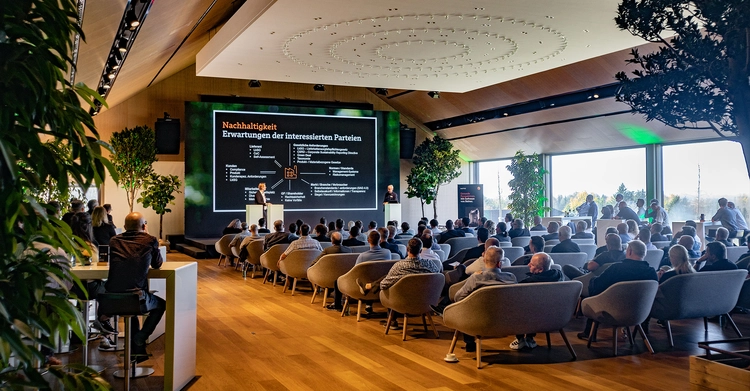Lutz Krämer: As you already mentioned, quality should not be "delegated away" to a few people in the company. This all the less with the understanding of the proximity of quality to sustainability and vice versa. Sustainability concerns all of us, including all employees and stakeholders of a company. Sustainability cannot be delegated away. Does this mean that isolated quality thinking as a specialized task is also a discontinued model?
Thomas Stöber: To be able to answer this question better, let's go back a step. There are regulatory requirements of various standards and other external requirements, e.g. commercial rules, legal regulations, customer-related requirements or e.g. those of society for fair cooperation. In addition, there are internal requirements, such as those of employees, investors or the processes themselves. In order for the company not to become a pawn in the game of competing interests, it is necessary to consciously position the company in dealing with external and internal expectations. It must be clarified which expectations become concrete requirements for the company and which should deliberately not be taken into account? To avoid an arbitrary mix, the positioning of the company is crucial. The responsibility here lies first and foremost with the top management. What does it stand for? Where should the company led by it be directed, how should it develop and what contribution can employees and business partners, for example, make? It quickly becomes clear that insofar as quality was seen in the past as the task of a few specialists in the company and thus delegated, this will and can no longer work, at the latest when it comes to sustainability and the great attention paid to it.
Lutz Krämer: What needs to be done? How do we get into the right action?
Thomas Stöber: The toolbox for this is well known, we are talking about the mission statement lived – or better still, exemplified by the management – corporate values, the quality and corporate policy and ultimately, quite decisively, functioning, effective processes. If this understanding is present in all those involved and in the leadership, it quickly becomes clear that the role of quality discussed earlier is far too short-sighted in the understanding of a firefighter.
Lutz Krämer: So you are appealing in particular to the top management to live up to its responsibility to place a modern understanding of quality in this sense?
Thomas Stöber: Correct, but this also requires the quality managers who demand this modern understanding of quality in the company and also help to shape it – so that quality can become a helping hand for all of us in uncertain times.









Comments
No comments